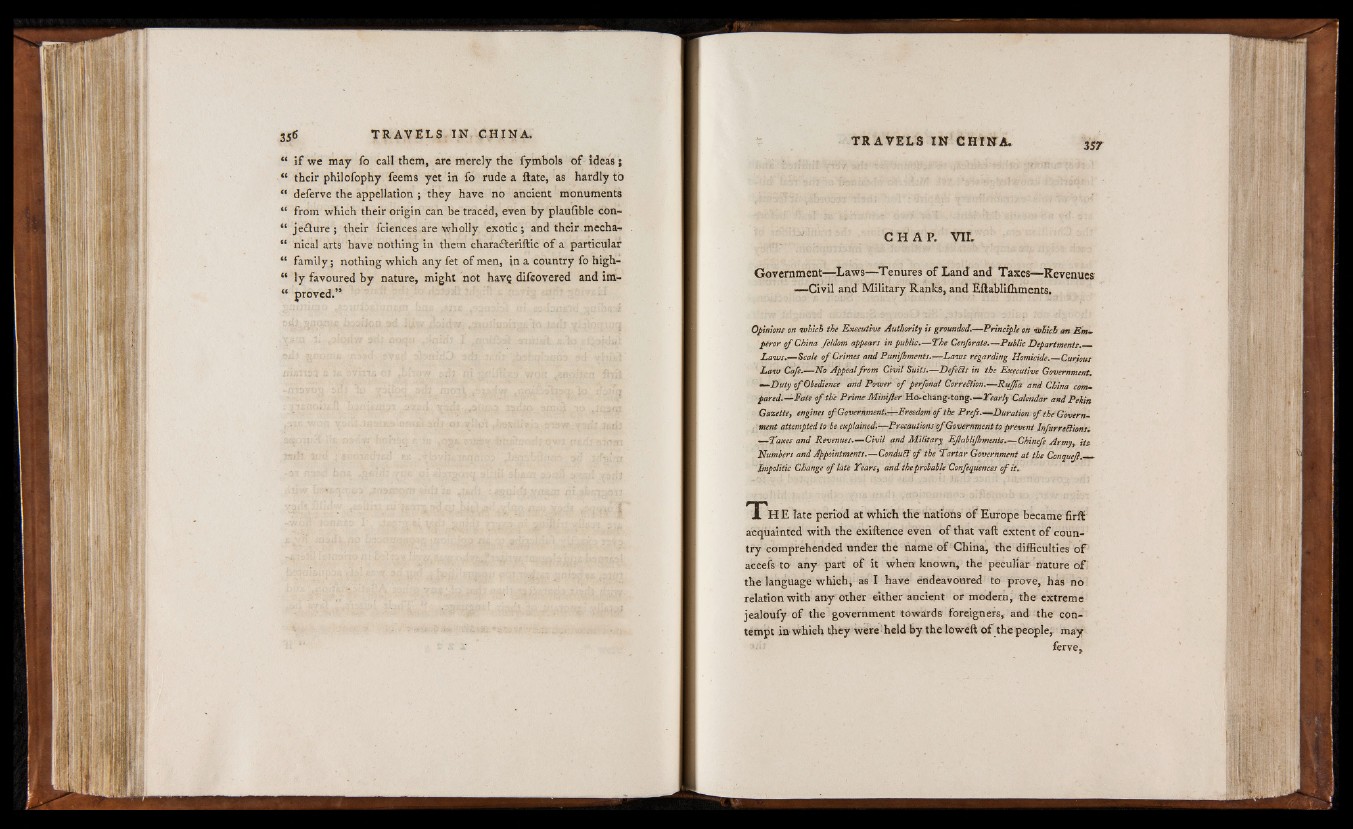
“ i f we may fo call them, are merely the fymbols o f ideas ;
“ their philofophy feems yet in fo rude a ftate, as hardly to
“ deferve the appellation ; they have no ancient monuments
“ from which their origin can be traced, even by plaufible con-
“ jeiture ; their fciences are wholly exotic; and their mecha-
“ nical arts have nothing in them chara£teriftic o f a particular
“ family; nothing which any fet o f men, in a country fo high-
“ ly favoured by nature, might not havç difcovered and iffi-
“ proved.”
C H A P . V I I .
Government— Laws— Tenures o f Land and Taxes— Revenues
— Civil and Military Ranks, and Eftabliihments.
Opinions on which the Executive Authority is grounded.— Principle on which an Em-
peror o f China feliom appears in public.— T h e Cenforate.— Public Departments.—
Law s.— Scale o f Crimes and Punfbments.-— Laws regarding Homicide. Curious
L aw Cafe.— Ho Appeal from C iv il Suits.— D efers in the Executive Government.
— Duty o f Obedience and Power o f perfonal Correction.— Ruffia and China com-
pared.— Fate o f the Prim e M inißer Ho-chäng-tong— Pearly Calendar and Pekin
. Gazette, engines of Government,— Freedom o f the P reß— Duration oftheGovern-
ment attempted to be explained.— Precautionsof Government to prevent InfurroRionso
— Taxes and Revenues.— C iv il and M ilitary Eftablißsments-— Ghinefe Army, its
Numbers and Appointments.— Conduit f the Tartar Government at the C cn q u f.__
Impolitic Change o f late Pears,, and the probable Conßquehces o f it..
T H E late period at which the "nations o f Europe became firfl:
acquainted with the exiftence even o f that vaft extent o f country
comprehended under the name o f China, the difficulties o f
aceefs to any part o f it when known, the peculiar nature o f
the language which, as I have endeavoured to prove, has no
relation with ahy other either ancient or modern, the extreme
jealöufy o f the government towards foreigners, and the contempt
in which they were: held by the loweft o f the people, may
ferve,